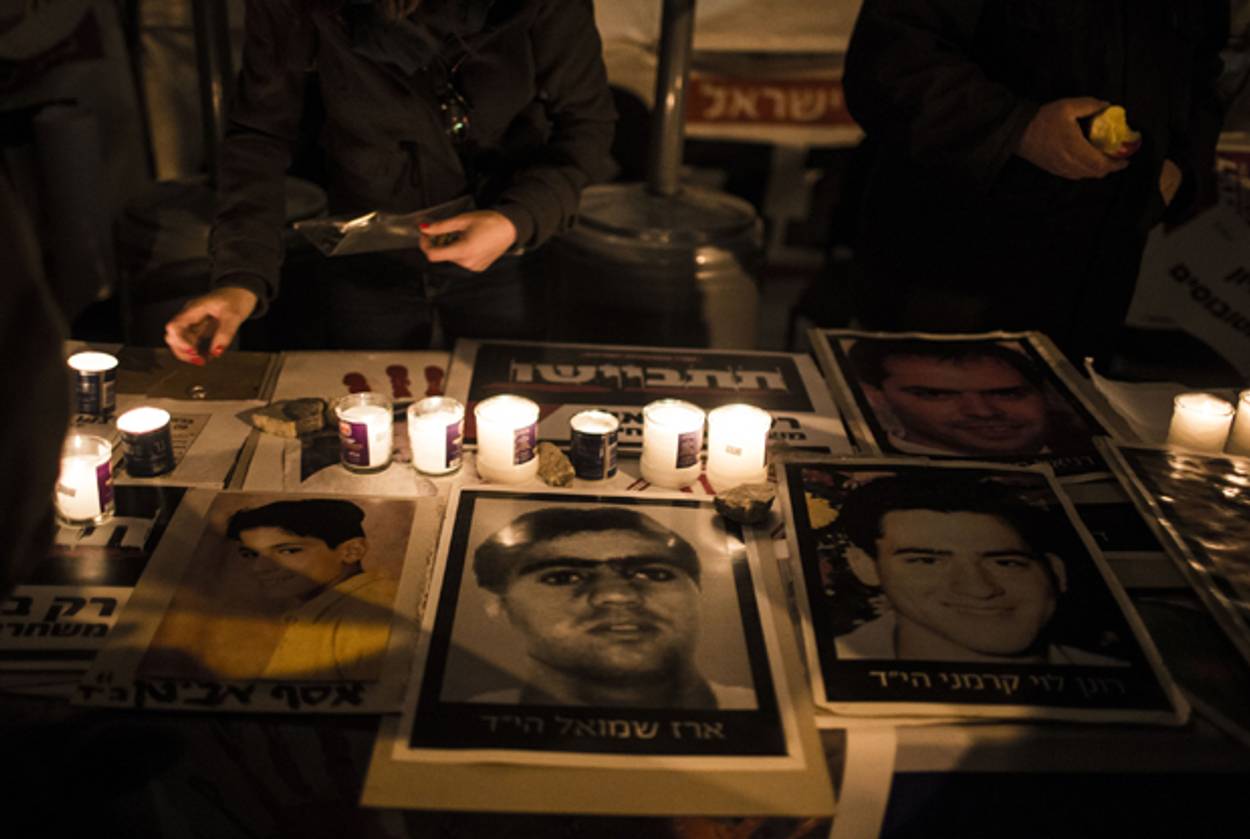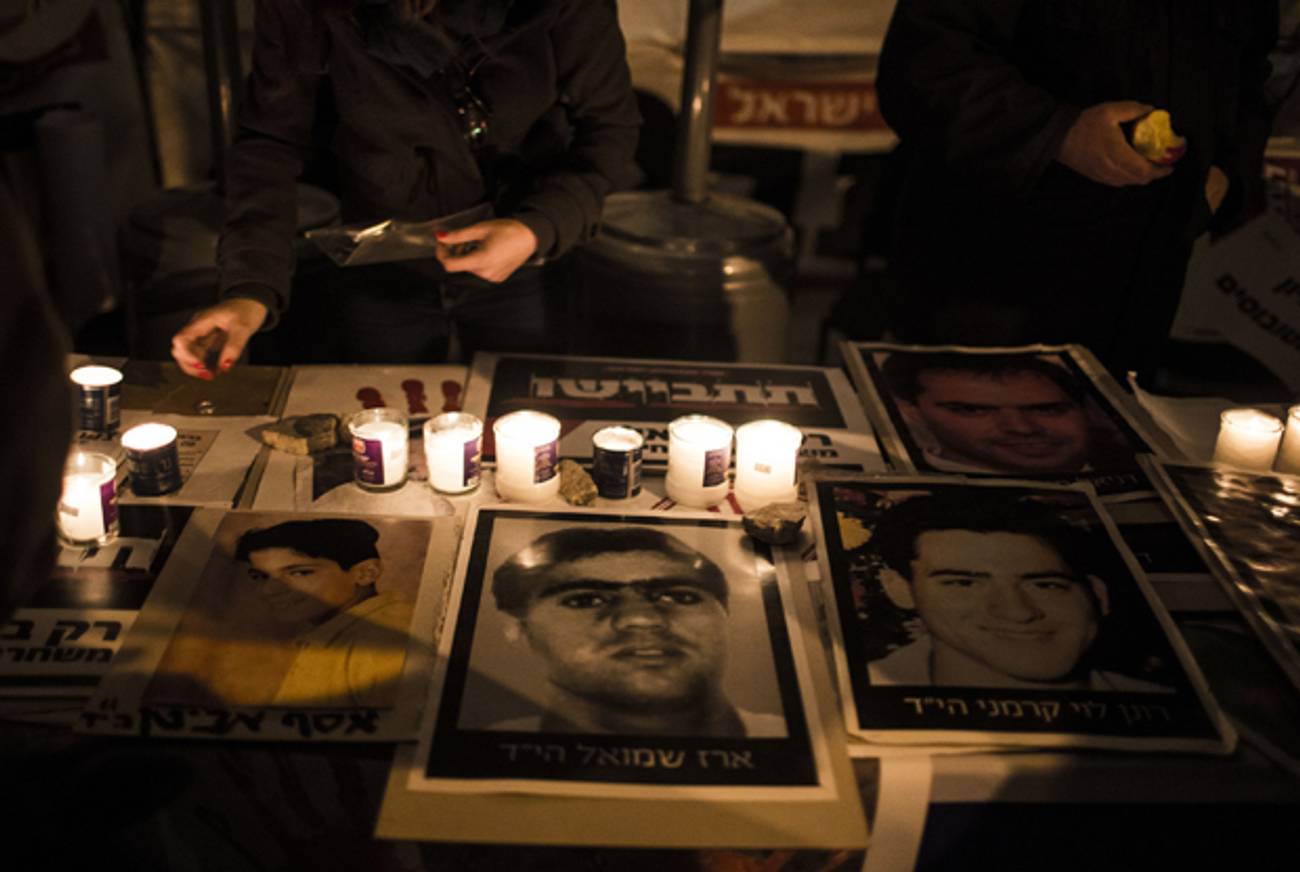The Lives They Lived
As Israel sets Palestinian prisoners free, remembering their victims




Monday morning, as part of the U.S.-brokered effort to rekindle peace talks, Israel released 26 Palestinian prisoners, the lion’s share of which are convicted murderers.
Reasonable people may debate whether or not the move is likely to promote true reconciliation, and, even if it does, whether it is worth the excruciating pain caused to the families now witnessing the men who had killed their loved ones set free. Such a conversation is currently heatedly unfolding in Israel, and ought to take place among all of us who cherish the Jewish state and share a concern for its future. As we debate, let us keep an open mind and empathize with arguments on either side. But no matter where we come down on this question, let also fulfill the primordial commandment to remember the dead.
Let us remember Friedrich Steven Rosenfeld, who was born in New York and served in the 82nd Airborne Division before finding work on a merchant ship and taking a short shore leave in Israel. Falling in love with the country, Rosenfeld made aliyah, got married, and spent much of his time hiking. On one such hike, on June 17, 1989, in the hills outside Ariel, he was attacked by a group of Palestinian shepherds who seized Rosenfeld’s knife, stabbed him to death, and tossed him by the wayside.
Let us remember Menahem Stern, a leading historian of the Second Temple period. Married to Hava Brenner, the niece of the great Hebrew writer Yosef Haim Brenner—himself murdered by Arab rioters in 1921—Stern attended Oxford University before returning to Jerusalem and receiving his Ph.D. from the Hebrew University, where he soon became a member of the faculty. His brilliant and innovative work earned him the Israel Prize, the nation’s top honor, as well as a host of other prestigious awards and appointments. On the morning of June 22, 1989, he was walking from his home to the university’s library in Givat Ram, as was his daily routine. Two terrorists attacked him and stabbed him to death. He left behind a wife, three daughters, and a son.
Let us remember Sarah Sharon, the mother of Limor, Mikey, Rami, Tali, Hagit, Noam, and David. She was walking down Ha’Yogev Street in Holon on her way to work on Wednesday morning, January 20, 1993, when she was jumped, stabbed, and killed.
Let us remember Yigal Shahaf, an amateur basketball player and dog trainer who worked the night shift in a bakery to put himself through engineering school. On his way back from a visit to the Kotel, he met Ronit, and soon the two fell in love and married. They made it a habit to visit the wall each Saturday night, read some psalms, and say a prayer. On the 10th of October, 1987, they prayed to God to grant them happiness until their very last breath. For Yigal, that breath came seven minutes later: as he and Ronit walked back home, a terrorist emerged from a nearby alley and shot Yigal in the head. He died in his wife’s arms.
Damra Ibrahim Mustafa Balal was the one who stabbed Rosenfeld. Salah Halil Ahmad Ibrahim and Muamar Ata Mahmoud Mahmoud murdered Menahem Stern. Daagna Nafal Mahmad Mahmoud planned and executed the deadly attack on Sarah Sharon. Abu-Hadir Mouhamad Yasin Yasin shot Yigal Shahaf. They are all free men now. As we watch the massive, official celebrations that greeted their arrival in Ramallah, and as we debate the strategic and moral merits of their release, we owe their victims, at the very least, a moment of silent reflection.
Liel Leibovitz is editor-at-large for Tablet Magazine and a host of its weekly culture podcast Unorthodox and daily Talmud podcast Take One. He is the editor of Zionism: The Tablet Guide.